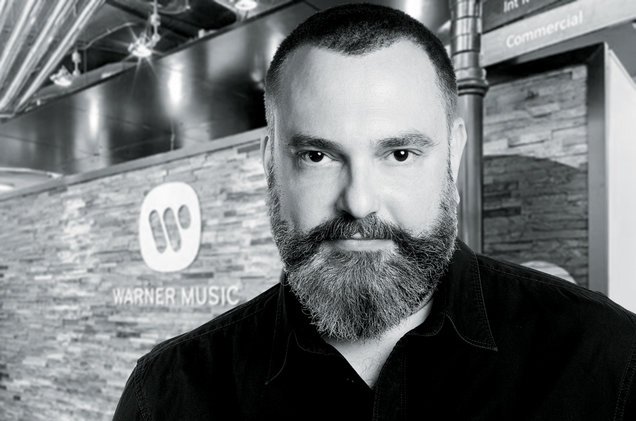With an addressable inhabitants of over 380 million, MENA is changing into an more and more important marketplace for the worldwide report enterprise.
Recorded music business revenues for the Center East and North Africa (MENA) area grew 37.8% in 2020, as much as $63.4 million.
That’s in response to international recorded music physique IFPI, which simply yr final opened its first workplace in MENA, demonstrating what IFPI CEO Frances Moore mentioned on the time was “the thrill and alternative we see within the area”.
Sony Music, Common Music Group and Warner Music Group all have a major presence in MENA at present, with WMG making a play for the market again in 2018 by way of the launch of its Warner Music Center East division.
Led by MD Moe Hamzeh, who’s based in Beirut, the regional HQ focuses on 17 markets throughout MENA, together with Algeria, Bahrain, Egypt, Iraq, Iran, Jordan, Kuwait, Lebanon, Libya, Morocco, Oman, Qatar, Saudi Arabia, Syria, Tunisia, United Arab Emirates and Yemen.
Hamzeh’s music business profession began in 1998, as a label supervisor for Music Grasp, Warner Music’s regional licensee on the time, overseeing the advertising and marketing and distribution of WMG’s repertoire in Lebanon.
He went on to discovered indie report label and writer Temple Leisure, and later opened Virgin Megastores’ flagship retailer within the area, the place he oversaw product advertising and marketing actions in Lebanon and growth into Saudi Arabia.
In 2008, he joined Melody Music and Artists Administration as Common Supervisor, and in 2012, took up the position of Head of Content material for streaming platform, m.media, the place he continued to work till becoming a member of WMG.
One among WMG’s largest strikes in MENA following the launch of Warner Music Center East in 2018 got here in February 2021, when it invested in Saudi Arabia’s Rotana Group-owned Rotana Music, which is claimed to be the biggest report label within the Center East.
The deal – believed to be an eight-figure acquisition for a minority stake – expanded WMG’s presence within the Center East and North African (MENA) area.
It was additionally introduced in February final yr that WMG’s label companies division ADA Worldwide would distribute Rotana releases globally exterior of MENA and by way of YouTube for the whole world.
Commenting on MENA’s historic positioning within the international music enterprise, Hamzeh tells MBW that “the Center East wasn’t on the radar for a lot of international music gamers for quite a lot of years”.
“Sky excessive piracy charges meant the bodily market by no means actually bought off the bottom,” he provides.
Streaming has ushered in a brand new period for the area’s music enterprise nonetheless, serving as the first driver behind the area’s 37.8% recorded music income development in 2020.
MBW caught up with Moe Hamzeh, and Tarek Mounir – the previous CEO of Deezer MENA – forward of their joint on-stage look on the XP music business convention in Saudi Arabia in December, about alternatives, challenges and development within the area…
DO YOU THINK THE MIDDLE EAST HAS BEEN MARGINALISED IN DISCUSSIONS ABOUT THE GLOBAL MUSIC BUSINESS IN THE PAST?
Moe Hamzeh: Even because the digital revolution bought underway, the business dialog about rising markets centered on Latin America, Asia or Sub-Saharan Africa. Individuals tended to see 17 fragmented international locations, fairly than an Arab-speaking market of just about 400 million folks. With digital development, we now have the flexibility to higher monetise the market and I hope that occasions similar to XP will assist change the narrative and present the potential that’s right here.

WHAT DO YOU SAY TO THOSE WHO CRITICISE THE MUSIC INDUSTRY FOR GETTING INVOLVED IN A COUNTRY LIKE SAUDI ARABIA?
Tarek Mounir: The music business ought to at all times be fan-focused. There are round 13 million Saudis beneath the age of 25 they usually’re hungry for tradition and leisure. By leaning in to them, we may also help be a catalyst for constructive change.
Things are changing rapidly here, in ways not always reported in the international media, and it’s exciting to be a part of that.
WHAT ARE THE OPPORTUNITIES FOR RECORD COMPANIES IN MENA?
MH: The mixture of a rising regional financial system, excessive digital penetration and a younger demographic are sturdy fundamentals for us. However you want the alchemy of a report label to assist younger artists profit from these traits. We’re serving to gifted performers begin to construct careers in music and that’s vastly thrilling. It’s altering their lives and it’s altering the lives of their followers.
WHAT TRENDS ARE WE SEEING IN THE MUSIC INDUSTRY ACROSS MENA – SURGING GENRES, MARKETS TO WATCH ETC?
MH: There’s a paradox in that digital platforms are enabling artists to achieve followers throughout borders, however we’re additionally seeing the emergence of stronger native scenes. There are a pair it’s value highlighting on your worldwide readers.
Mahraganat, generally often known as electro-shaabi, has swept Egypt. It has its roots within the streets of Cairo and is related to weddings and festivities, it actually interprets as “festivals” in English. It depends closely on laptop generated and synth beats and is sort of completely different to the romantic pop that’s dominated the charts for many years. It’s additionally influenced the expansion of Egyptian hip-hop.
North African hip-hop is sort of completely different to something you see popping out of the States. Due to the sturdy diaspora presence in France and Italy, you see a cross-pollination between artists from the likes of Algiers, Tangiers and Tunis with these from Milan, Paris and Marseilles. Drawing on the standard wealthy cultures of North Africa, it makes for a fast-moving scene.
Khaliji is standard within the Gulf States and depends on the rhythm that comes from African and Indian music, in addition to native beats.
IS IT PROVING EASIER FOR ARABIC ARTISTS TO REACH AN AUDIENCE ACROSS THE REGION NOW?
TM: As Moe mentioned, there’s a paradox that digital platforms make it simpler to followers to entry music from anyplace, however on the similar time we’re seeing the emergence of stronger native scenes. There are fewer pan-Arab superstars within the type of Amr Diab – it’s grow to be simpler to achieve audiences in several territories, however more durable to breakthrough as there’s a lot competitors. However that I feel is the place new funding from report firms could make a distinction, they will put collectively campaigns that can assist artists join with followers from throughout the area extra simply.
MH: And we’re beginning to see that occur. For instance, The Synaptik is a tremendous rapper of Palestinian and Jordanian heritage who we’ve been in a position to assist construct a major fan base in Egypt.
ARE THERE CHALLENGES FOR ARTISTS FROM UNDERREPRESENTED GROUPS – SUCH AS WOMEN OR THOSE WHO ARE LGBT+?
MH: Issues are altering, and whereas legal guidelines are nonetheless discriminatory in lots of international locations, younger individuals are open to participating with artists from completely different backgrounds and new views. As a report firm, we’re dedicated to fairness and variety and wish to assist society evolve, whereas nonetheless being respectful of traditions. However there are nonetheless obstacles – take the indie band Mashrou’ Leila, who’re enormous in Lebanon and throughout the area, they discovered themselves banned from performing reside in some international locations due to their affiliation with LGBTQ+ rights. So – in all honesty – there’s a protracted technique to go.
DO YOU THINK THERE’S AN AUDIENCE FOR ARABIC MUSIC BEYOND THE REGION?
TM: There’s an enormous international viewers for Arabic music. There’s a major diaspora in North and South America, Europe and Australia. They act as champions for Arabic artists of their wider societies and in an age when many streaming companies are international, they assist drive the performers they love up the charts.
WHAT MISCONCEPTIONS ABOUT THE REGION WOULD YOU LIKE CORRECT?
MH: Too typically the Center East has been within the headlines internationally due to political points, however that masks the story of a area whose financial system is rising powerfully and a people who find themselves embracing change. Music is about pleasure and celebration, and is a good software for cultural dialogue. I hope it helps deliver folks collectively.
HOW DO YOU SEE THE NEXT FEW YEARS PLAYING OUT FOR THE MUSIC BUSINESS IN MENA?
TM: The business is rising quick, however we’ve nonetheless bought challenges to beat. Low bank card penetration means we have to be progressive about fee gateways; copyright regimes have to be up to date and enforced; we have to decrease knowledge prices as they’ve in markets similar to India. And, most of all, we have to educate followers that music is value paying for. However I’m assured we are able to clear all these hurdles and open a path to much more speedy development.
MH: The following 5 years might be a time of seeding and creating the business. I studied geology a few years in the past, so I nonetheless use the analogy of turning graphite into diamond! I feel we’re beginning to see funding are available in, governments see the chance a thriving artistic sector gives and native music scenes explode. The opening of an IFPI workplace within the area was the most recent milestone within the creation of a copyright infrastructure that can permit us to construct a correct business. So I feel the following few years might be exhausting, exhilarating and rewarding!
WHAT WOULD YOU CHANGE ABOUT THE MUSIC INDUSTRY AND WHY?
MH: On a regional degree, I’d wish to see higher schooling across the worth of music. Years of piracy has led a big proportion of the Center East inhabitants to imagine music needs to be free. Our artists and the business would profit vastly if extra folks migrated to paid subscription companies.
MOE MENTIONS THAT DIGITAL PLATFORMS ARE ENABLING ARTISTS TO REACH FANS ACROSS BORDERS,” COULD HE EXPAND A BIT ON THIS – WHAT PLATFORMS ARE THEY SEEING THE BIGGEST GROWTH ON?
MH: Worldwide companies similar to Apple Music, Deezer and Spotify supply a chance for our artists to climb the worldwide charts. Regional market leaders, similar to Anghami, are additionally enabling artists to achieve followers throughout the Arabic world and past. And YouTube is a vastly standard channel for music followers proper throughout the area, whereas its latest initiative of producing MENA-specific charts exhibits it recognises the potential of the area.
MENA-FOCUSED MUSIC STREAMING SERVICE ANGHAMI IS PLANNING TO LIST ON THE NASDAQ – TELL US ABOUT THE SIGNIFICANCE OF THIS NEWS FOR THE MUSIC AND TECH INDUSTRIES IN THE WIDER REGION?
MH: It was sensible information to see an Arab know-how firm from MENA checklist on NASDAQ for the primary time. It additionally shines an actual highlight on the area.





